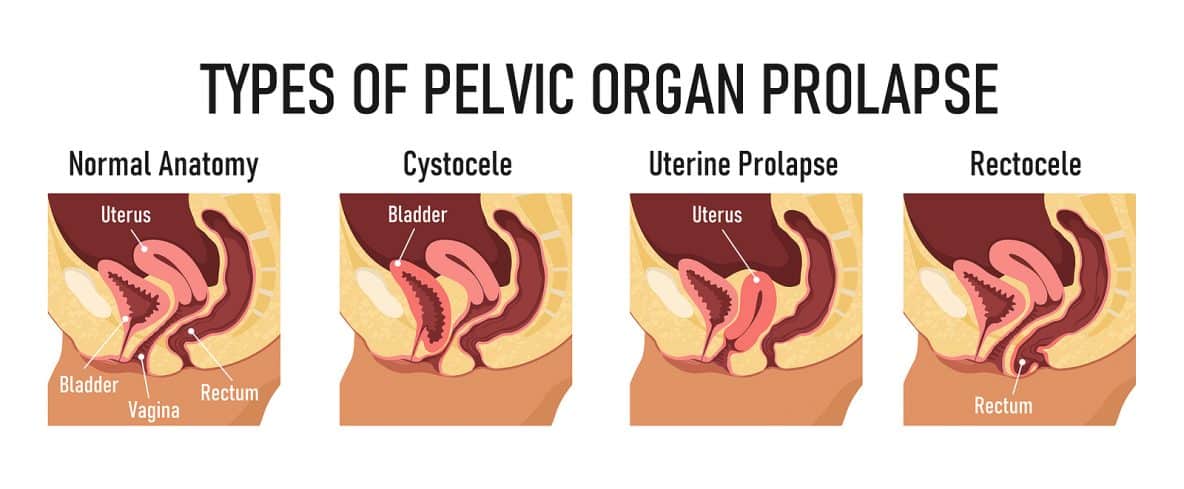According to the Continence Foundation of Australia, over 50% of women who have given birth have some stage of prolapse. Pelvic Organ Prolapse occurs when the ligaments and connective tissue supporting the pelvic organs (bladder, uterus and bowel/rectum) are damaged/stretched causing them to bulge into the vagina.
What causes Prolapse?
Childbirth is the most common cause of prolapse as the baby can stretch or tear the supporting tissue on its way down the vagina. The baby can also tear/stretch the pelvic floor muscles at birth.
Other causes include:
- Chronic cough/breathing conditions such as asthma or COPD
- Repetitive heavy lifting
- Constipation with straining and pushing to empty bowels
- Obesity
What are the common types of prolapse?
- Cystocele: The bladder bulging into the anterior vaginal wall
- Rectocele: The bowel/rectum bulging into the posterior vaginal wall
- Uterine prolapse: The uterus bulging down into the vagina
What are the symptoms of prolapse?
The symptoms of prolapse depend on the type of prolapse and how much pelvic organ support you have lost. In the early stages of prolapse it might be completely asymptomatic, but a GP/Physiotherapist may see it when you have an internal exam completed.
You may notice symptoms such as:
- A heaviness or dragging in the vagina
- A bulge/lump feeling in the vagina (like a tampon is sitting too low)
- A lump outside the vagina that you may see/feel when you are in the shower or toileting
- Sexual dysfunction such as pain
- Your bladder may not empty completely or you may get a slow urinary stream
- It may be hard to empty your bowels
So how can a Pelvic Physiotherapist help with your prolapse symptoms?
Depending on the degree of prolapse your GP may advise you to see a Pelvic Physiotherapist before a gynaecologist as it can often be treated without surgery.
This approach involves:
- Pelvic floor training as strengthening your pelvic floor can assist in reducing the symptoms of prolapse
- Lifestyle changes and advice to stop it from worsening
- Good bladder and bowel habits- no stressing or straining on the toilet and using correct positioning (your physiotherapist will go through this with you)
- Potentially a pessary insertion- which can be fitted by our physiotherapist Marilla Morrey. It is a silicon device that is fitted inside the vagina to support the pelvic organs.
We can offer some relief to you if you have been experiencing any or all of the symptoms listed above. Contact Proactive Physiotherapy today and organise your confidential appointment with one of our Pelvic Physiotherapists: 07 4053 6222.
Image by Advanced Gynecology


